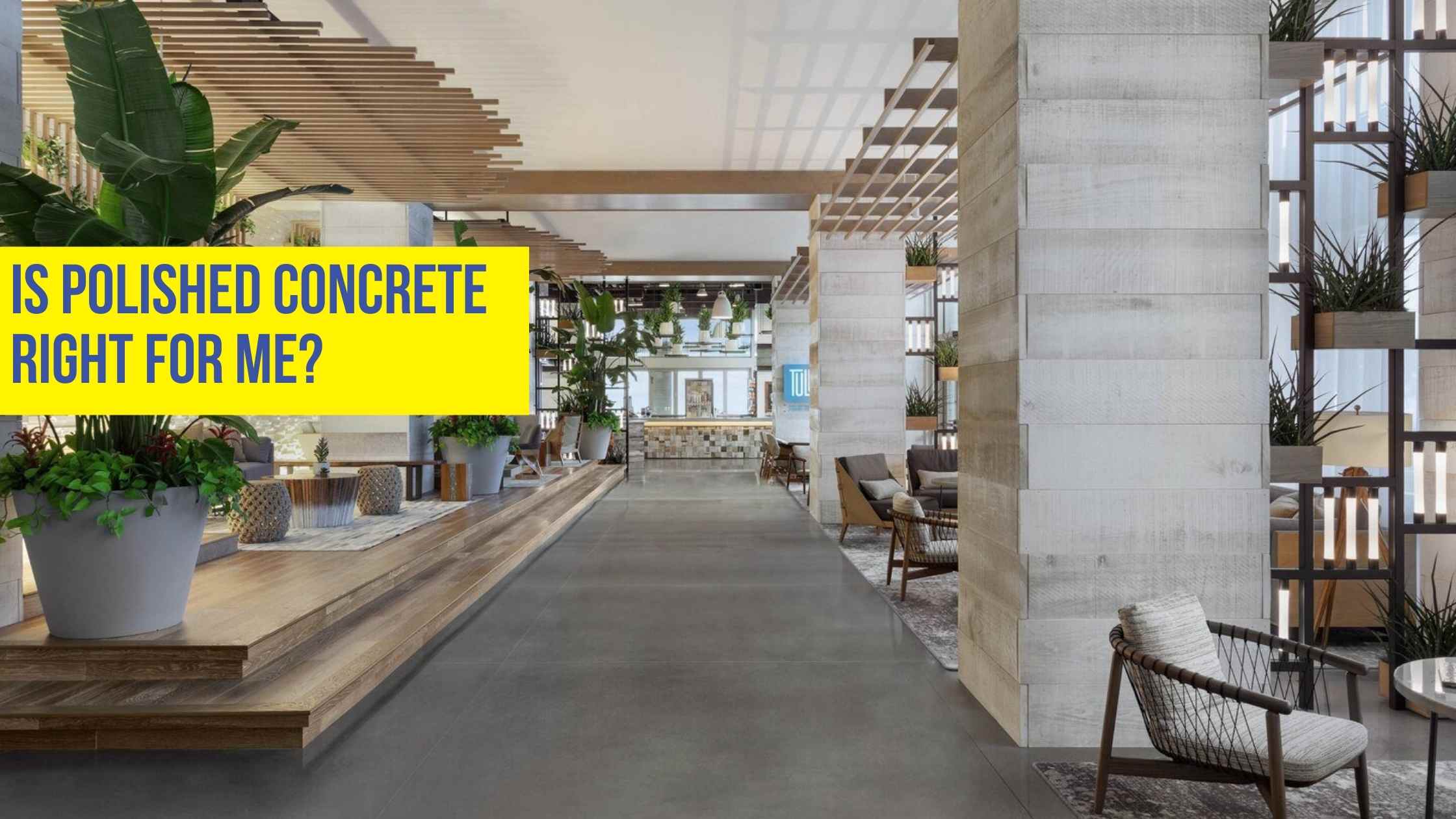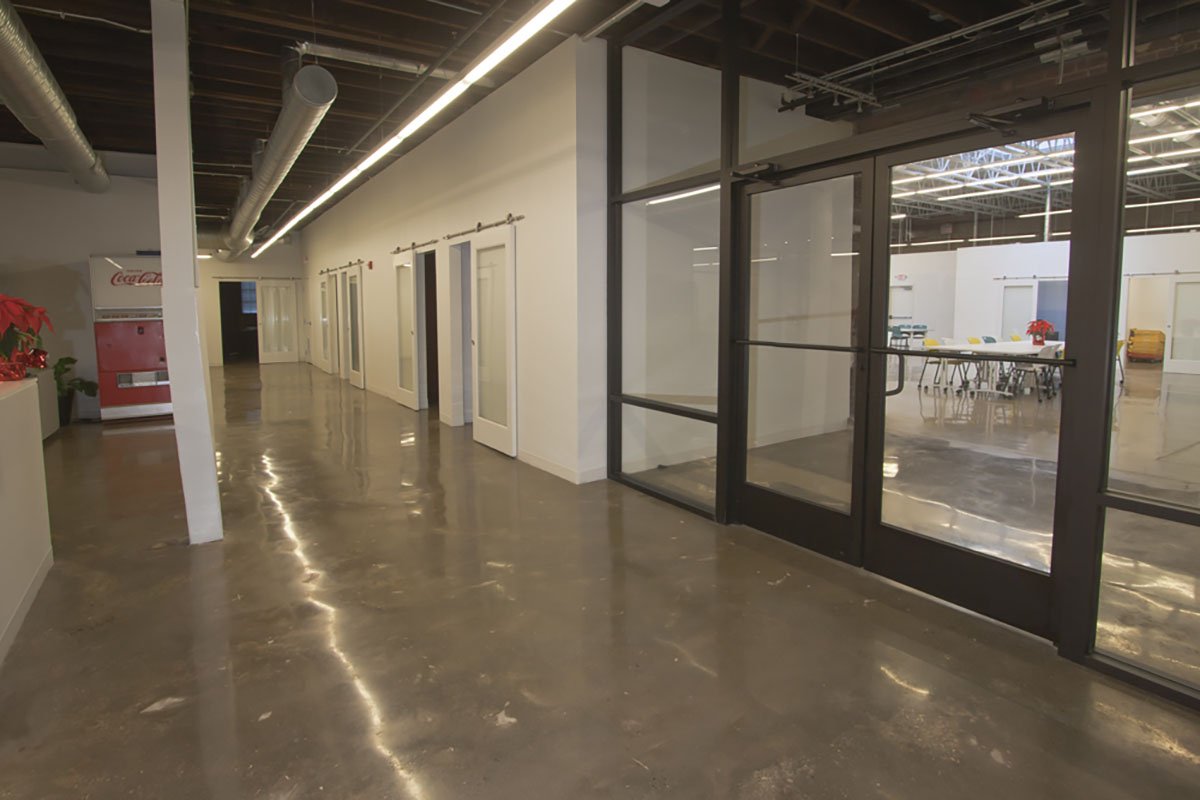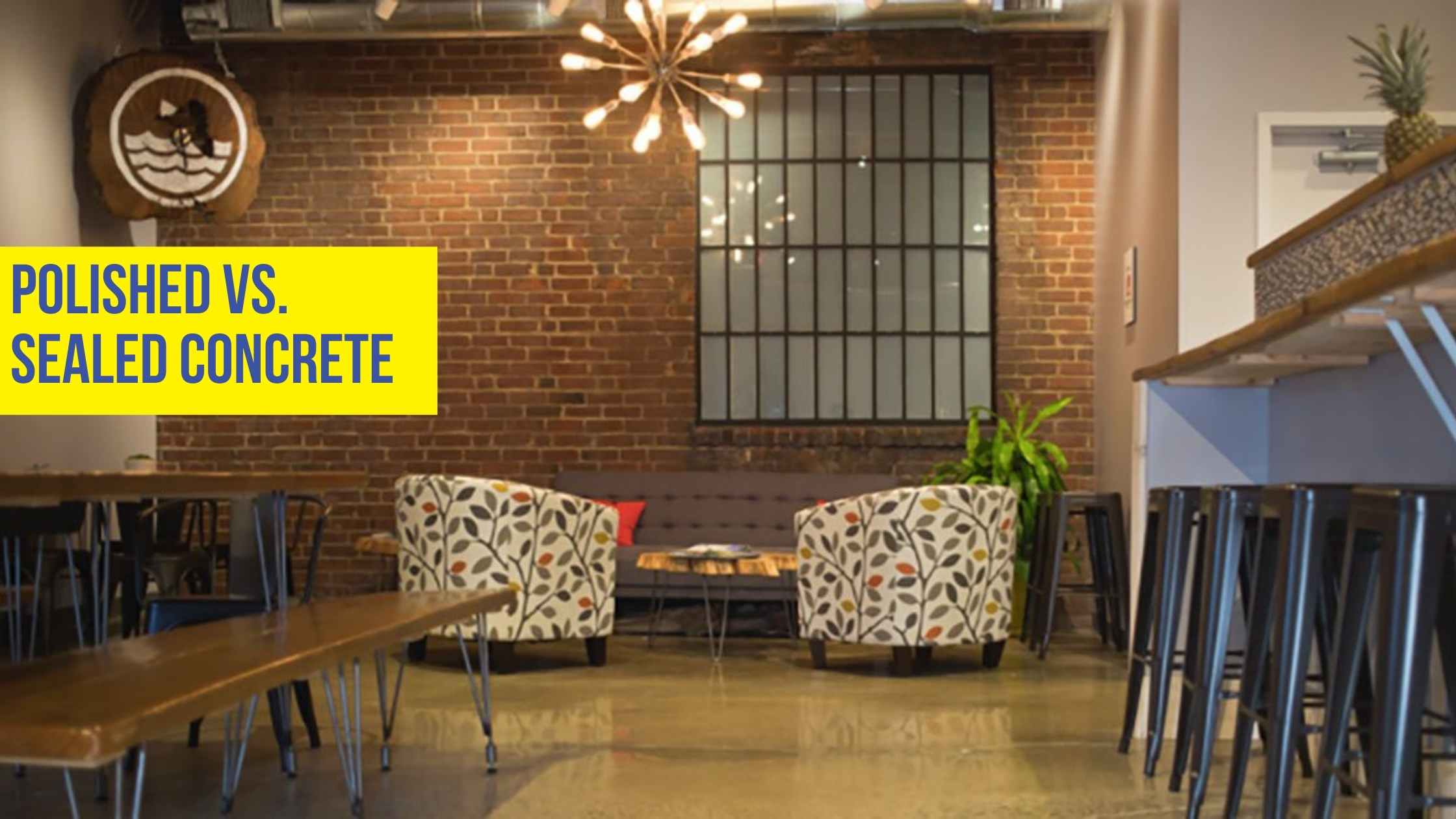
Is Polished Concrete Right for Me?
Chances are, if you’re investing in new flooring, you’ve come across polished concrete in your research. Maybe a friend told you that it never stains, or your architect promised it lasts forever with no maintenance. You’ve heard enough about the popular flooring process to be curious, and now you want to know if it’s worth your time.
The honest answer is simple: it depends. It’s a versatile and economical flooring option that fits a wide variety of use cases. Concreate has been in business long enough to see the good and the bad of polished concrete decisions, and we’re more than happy to share our knowledge with you.
While it’s adaptable, polished concrete is not a one-size-fits-all solution, and going in with the facts will save you a lot of money and time. In this article, we’ll go over the benefits of polished concrete, who should avoid it, and what conditions matter.
What is Polished Concrete?
Polished concrete is a mechanical grinding and polishing process that uses industrial tools to level, densify, polish, and seal the floor from within the interior of the floor surface. It offers a lot of perks that you won’t find anywhere else, producing stunning and unique results.
As with any other flooring option, polished concrete has its ideal uses.
Things to Consider Before Starting a Project
What Made You Pick Polished Concrete?
What pain point are you trying to solve with polished concrete? Having a thorough understanding of your flooring needs will help you make the best decision.
Reasons to Go With Polished Concrete:
Low Maintenance and Durable: While it’s not maintenance-free (nothing in life is), it’s the lowest maintenance floor you can have. It’s also easy to clean, needing only a Swiffer in some instances.
Ease of Movement: Carts and machinery roll easily on polished concrete floors, so moving merchandise around is an easier task. It’s flat, making transitions between slabs and joints smooth. Warehouses, hangars, and other large spaces are a perfect match for this type of flooring.
Affordability: Savings-wise, polished concrete will be cheaper than most materials in the long run (terrazzo, for example). Something like VCT (vinyl composition tile) may be cheaper to put down, but the durability of polished concrete makes it a better expense over its lifecycle. It’s also more affordable if you already have concrete flooring.

Where Will You Put It?
Location should be another huge factor in your thought process. You’ll find that polished concrete is a good idea in one area and a nightmare in another, even in the same building.
The larger the area, the more cost-effective this flooring choice will be. A big site allows us to install it faster and with bigger and better tools. Size can easily dictate your project’s overall price and timeline, so knowing the location specifics and your budget should help with your decision.
Something like small cubicles would be a costly process – we’d need to find solutions to get equipment into the area.
Where You Shouldn’t Put It:
Places Where People are Standing for Long Periods
Polished concrete is still concrete – it’s incredibly hard. Standing on it for long periods of time isn’t ideal. Fatigue mats can help with the issue.
Kitchens or Bathrooms in Food Service
Fats, greases, and other staining materials will make the floor look dirty over time. While grease spills won’t damage the floor structurally, polished concrete could be permanently stained if not treated immediately after mishaps. Busy kitchens that are prone to messes make a terrible candidate for this reason.
Public restrooms are also prone to staining (for reasons we won’t mention).
Places That Work With Acids
Acids will ruin polished concrete, so anywhere that deals with acid solutions should avoid the flooring. You can immediately rule out places that deal with a lot of strong chemicals, like:
- Orange juice manufacturers
- Milk-producing manufacturers
- Anywhere that cleans with acid-solutions
Around Swimming Pools
While polished concrete is not slick, placing it around swimming pools is a recipe for disaster. It’s smooth, shiny, and extremely hot in the sun. It’s not slippery, but adding liquid to any smooth surface that you’ll run on is a mistake.
What Condition is The Ground in Already?
Cracks already present in the ground can be treated, but they won’t go away. We can polish it, but you’ll still see all those imperfections. The floor will still be safe to walk on, but it’s essential to understand what polished concrete can’t fix or cover, like:
- Blemishes
- Knots and cracks
- Holes
The best way to know what your concrete will look like after polishing is to do a sample. Pick the worst area on your floor, and let us polish that.
Remember: if there’s a crack in the ground before it’s polished, there will be a crack in the ground when it’s finished.

Who is the Perfect Candidate for Polished Concrete?
Polished concrete is a flexible and affordable flooring option, and it’s excellent for most buildings, especially:
- High-end residential
- Warehouses
- Retail
- Hangars and airports
- Office suites
- Basements and garages
- Showrooms
- Industrial plants
- Government buildings
With that being said, you should still check to see if your specific situation fits with this flooring type. The main point of dissatisfaction when it comes to polished concrete is from people who were not the right fit for it in the first place. If you’re unsure, contact us, and we can walk you through the benefits, pros, and cons of the polished concrete process.

